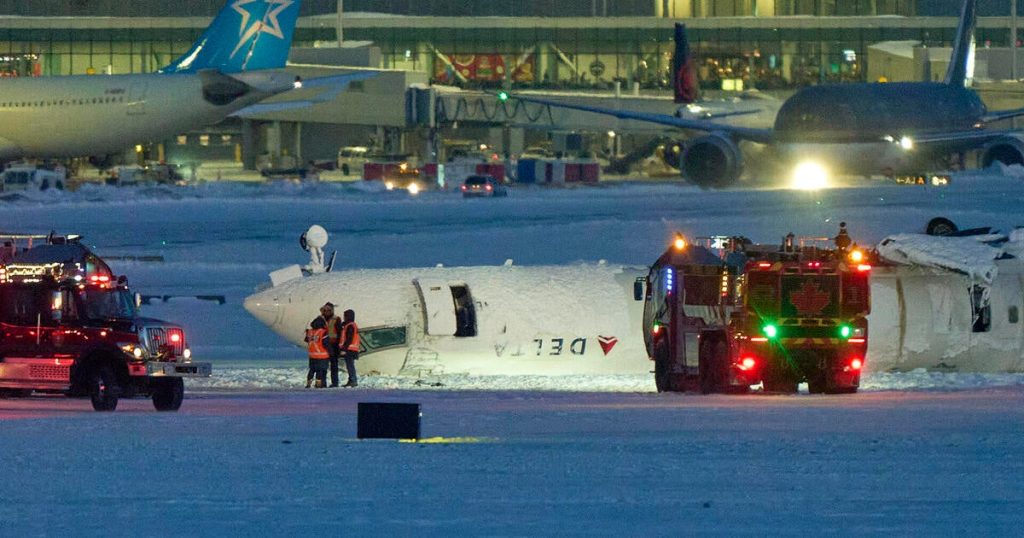Delta Air Lines Flight 4819 Crash: A Miracle of Survival and Investigation
On a frigid Monday, Delta Air Lines Flight 4819, operated by Endeavor Air, was on a routine journey from Minneapolis to Toronto with 76 passengers and 4 crew members. The flight took a dire turn during landing when the plane skidded, caught fire, and flipped over, leaving passengers suspended upside down from their seatbelts. Miraculously, all 80 individuals survived, though 21 suffered injuries, with two in critical condition.
The crash occurred amidst harsh winter conditions in Toronto, with blowing snow reducing visibility to six miles and temperatures plummeting to 17 degrees Fahrenheit. Despite initial concerns about weather conditions, officials noted the runway was dry, suggesting other factors might have contributed to the accident. The Canadian Transportation Safety Board, assisted by U.S. agencies, is investigating potential causes, including mechanical issues or pilot error.
Emergency responders acted swiftly, evacuating passengers within minutes despite the challenges of fire and the plane’s overturned state. The crew’s heroic actions, leading passengers to safety, were praised for their efficiency and bravery. By Tuesday, 19 injured passengers were released, while two remained hospitalized in critical but stable condition.
Passengers described the ordeal as traumatic, with the plane’s interior transformed upside down and the harsh, cold environment outside adding to the distress. The incident underscores the importance of crew training and emergency preparedness, highlighting the margin between disaster and safety in aviation.
As investigators delve into the cause of the crash, their findings could significantly impact future aviation safety measures. The resilience and survival of all on board serve as a testament to human preparedness and the efficacy of emergency protocols. This event, while harrowing, remains a story of survival and a pivotal moment for improving air travel safety.















